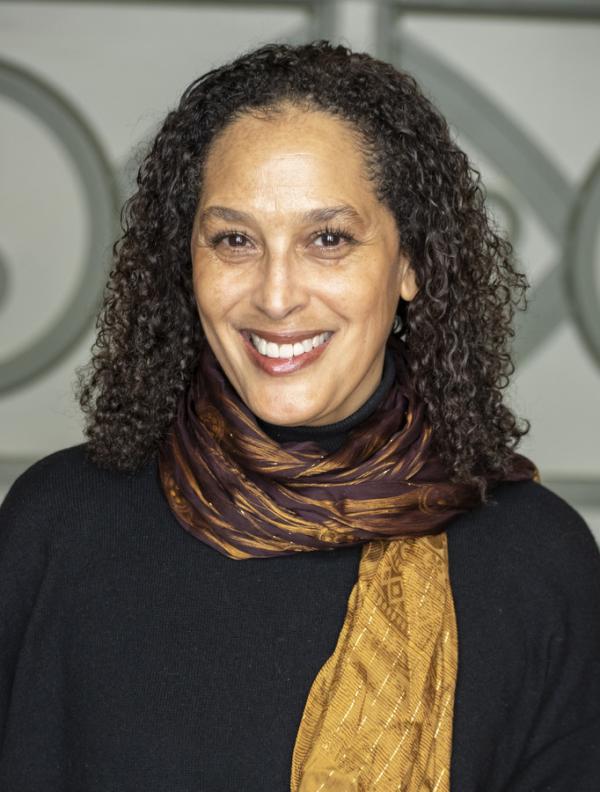
Laurie Woodard, CCNY history professor and author, has been named to the 400 Years of African-American History Commission by Governor Kathy Hochul.
Award-winning City College of New York historian Laurie Woodard is one of seven notable academics and leaders – among them Hazel Dukes of the NAACP -- appointed by New York State Governor Kathy Hochul to the 400 Years of African-American History Commission. The body serves to highlight contributions by Africans and African-Americans to both the nation and the State.
Hochul announced the appointments in Newburgh, where she also said commemoration plaques would be dedicated in honor of Robert Mulliner and Robert Lewis, two victims of racially-motivated lynchings in Orange County, in 1863 and 1892, respectively.
"For every reminder of the pivotal role New York has played in the fight for civil rights, there is another, more painful reminder of why that fight was necessary in the first place," said the Governor. "We must recognize and acknowledge shameful chapters in our state's past, ensure New Yorkers have a better understanding of our history, and fight racism and bigotry in all forms.”
Woodard is an assistant professor in CCNY’s Division of Humanities and the Arts’ History Department and Black Studies Program. Her research is on the intersection of cultural and political realms, and employs interdisciplinary methodologies, drawing from performance studies, critical race theory, and women and gender studies.
She’s the recipient of two National Endowment for the Humanities (NEH) awards: the Schomburg Scholar-in-Residence Fellowship and the NEH Humanities Faculty Award for her book project on famed actress and civil rights activist Fredi Washington’s role in the Harlem Renaissance. A Yale University alumnus, Woodard received the Sylvia Ardyn Boone Prize awarded for the best written work by a Yale student on African or African-American art.
Her work has appeared in The New York Times and American Quarterly and she’s completing her manuscript on the life and work of Fredi Washington.
Gov. Hochul’s other 400 Years of African-American History Commission appointees are:
- Hazel Dukes, president of the NAACP New York State Conference;
- Henry Taylor, urban historian, University at Buffalo;
- Anne C. Bailey, historian, SUNY Binghamton;
- Kishi Ducre, associate dean, diversity, equity, and inclusion, Syracuse University;
- Jennifer Jones Austin, CEO, Federation of Protestant Welfare Agencies; and
- Joy Bivins, director, Schomburg Center.
In addition to Woodard and the Governor’s other picks, the Commission will include eight other members appointed by city and state political leaders. They will partner with community-based organizations via events, activities, and educational research.
About the 400 Years of African-American History Commission
New York State’s 400 Years of African-American History Commission is tasked with determining what the state should do to mark the 400+ years of time since the first slave ship arrived in America. What was the historic impact of slavery’s introduction to America, and what is that impact today. How can the State best acknowledge, recognize, reconcile, and mark slavery’s role in who we are as a people. The recognition and acknowledgement could be events, structures, memorials, or programs. The role of the commission is to explore the best means of ensuring that the impact of slavery is not only recognized as an historic tragedy, but remembered and addressed as a tragedy that continues to shape our lives today.
About the City College of New York
Since 1847, The City College of New York has provided a high-quality and affordable education to generations of New Yorkers in a wide variety of disciplines. CCNY embraces its position at the forefront of social change. It is ranked #1 by the Harvard-based Opportunity Insights out of 369 selective public colleges in the United States on the overall mobility index. This measure reflects both access and outcomes, representing the likelihood that a student at CCNY can move up two or more income quintiles. In addition, the Center for World University Rankings places CCNY in the top 1.8% of universities worldwide in terms of academic excellence. Labor analytics firm Emsi puts at $1.9 billion CCNY’s annual economic impact on the regional economy (5 boroughs and 5 adjacent counties) and quantifies the “for dollar” return on investment to students, taxpayers and society. At City College, more than 16,000 students pursue undergraduate and graduate degrees in eight schools and divisions, driven by significant funded research, creativity and scholarship. CCNY is as diverse, dynamic and visionary as New York City itself. View CCNY Media Kit.
Jay Mwamba
p: 212.650.7580
e:
jmwamba@ccny.cuny.edu